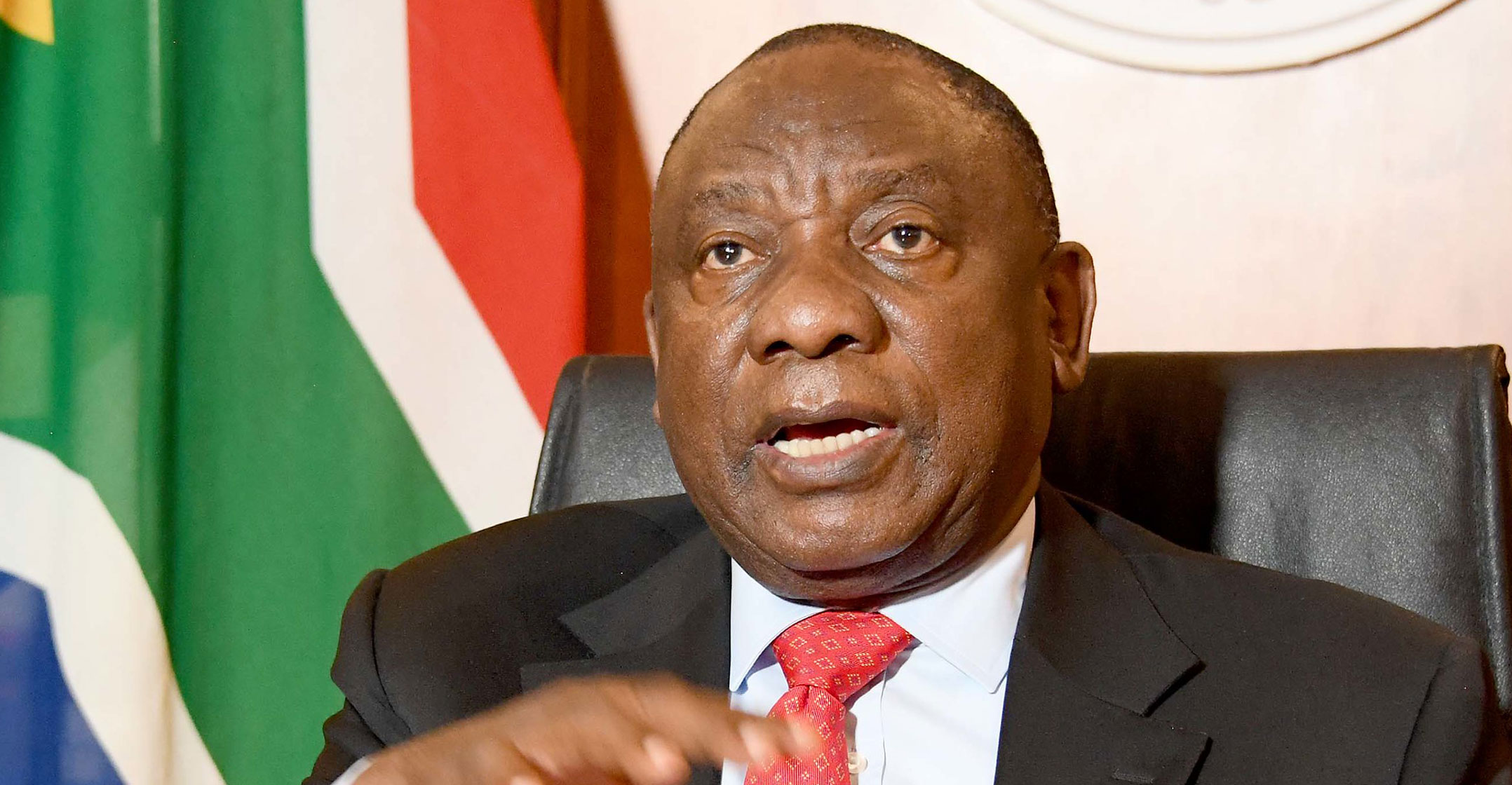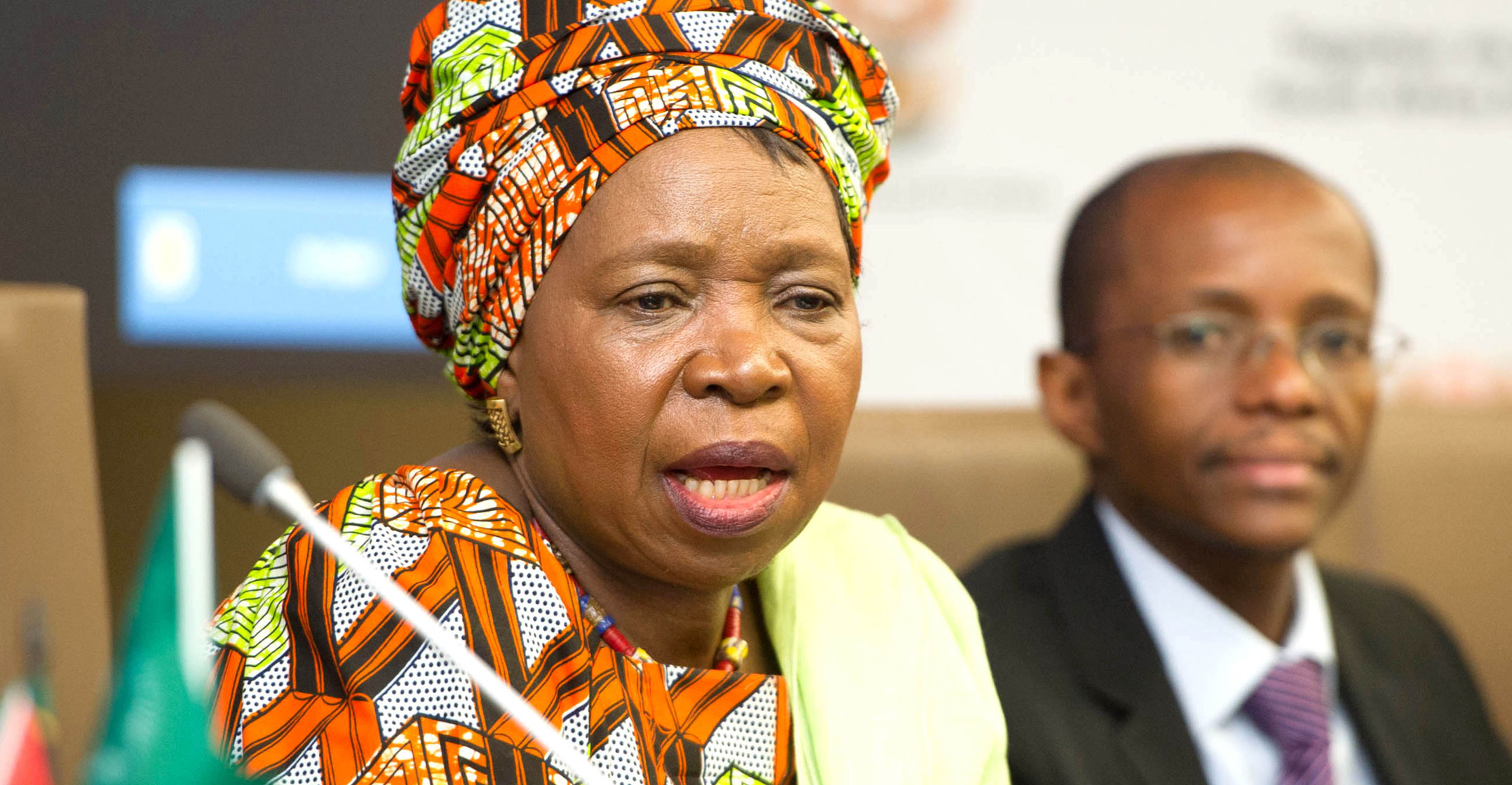
President Cyril Ramaphosa has won praise for his response to the coronavirus outbreak. Now, he’s risking a public backlash after members of his cabinet reversed some of his measures and made racially charged statements.
South Africa identified its first case of the virus on 5 March and imposed a stringent lockdown three weeks later, shutting schools and businesses and confining everyone but essential workers to their homes. With less than 7 000 confirmed cases out of a population of 59 million people, and one of Africa’s most widespread testing programmes, Ramaphosa’s health policy appears to be paying off.
But while Ramaphosa and his health minister, Zweli Mkhize, have been lauded for explaining the response and showing compassion with those at risk of losing their income, several ministers in Ramaphosa’s cabinet have introduced rules that are seen as arbitrary and playing to racial animosity. That’s prompted accusations that authorities have gone too far, and undermined Ramaphosa’s initial gains.
“Serious weaknesses are exposed with certain ministers making statements that are quite divisive,” said Nic Borain, an independent economist. “There is a certain authoritarian slant in both the policing and the structure of the legislation.”
Much of the controversy has centred on a ban on tobacco sales and exercise. In a 23 April speech, Ramaphosa announced that cigarette sales and outdoor exercise could resume from 1 May, as part of measures to ease the lockdown and bring it to level 4 from level 5, the most severe set of rules.
Six days later, the lifting of the cigarette ban was reversed by his former rival for the leadership of the ANC, Nkosazana Dlamini-Zuma, who serves as minister of cooperative governance & traditional affairs. Outdoor exercise was limited to between 6am and 9am, she said.
Rules flouted
Since then, more than 400 000 people have signed a petition opposing the tobacco ban and British American Tobacco says it’s considering legal action. Other rules are increasingly being flouted, with more than 17 000 people arrested within the space of one week for non-compliance.
“The decision to retain the prohibition on tobacco sales was the result of an inclusive process,” the presidency said in an e-mailed response to comments. “There is no foundation to the suggestion that this undermined the authority of the president.”
Then, faced with crowds of joggers, walkers and cyclists on 1 May, police minister Bheki Cele immediately threatened to reimpose level 5, drawing condemnation for his authoritarian manner of speaking.

“Here we find ourselves, somehow being treated like naughty children and yourselves being our self-appointed parents,” Mike Abel, founder and CEO of M&Saatchi Abel, an advertising agency, said in an open letter to the government. “You have overreached in terms of your controls.”
Race- and nationality-based policy announcements have further divided public opinion. Less than a year after the country was hit by xenophobic riots, finance minister Tito Mboweni said on 24 April that when the crisis is over, more South Africans rather than foreigners should be employed in restaurants and agriculture.
The decision of tourism minister Mmamoloko Kubayi-Ngubane to prioritise black-owned businesses for aid from a fund designed to help stricken tourism operations has attracted a lawsuit from the Solidarity labour union.
“It is untrue that there are different messages coming from cabinet,” Ramaphosa’s office said. “Government is committed to ensuring that it remains responsive and adaptive at all times.”
The divergent statements coming out of cabinet reflect the balancing act Ramaphosa has had to make in the selection of his executive, said Borain. After narrowly winning the presidency of the ANC in 2017, Ramaphosa was forced to accommodate allies of his predecessor, Jacob Zuma, as well as his own choices within the country’s leadership.
“It puts the government in a very uneven light,” said Susan Booysen, director of research at the Johannesburg-based Mapungubwe Institute for Strategic Reflection. The discordant messaging that’s coming out of government is doing Ramaphosa few favours, according to Booysen.
“He will need every bit of political capital he can muster,” she said. — Reported by Antony Sguazzin, (c) 2020 Bloomberg LP

